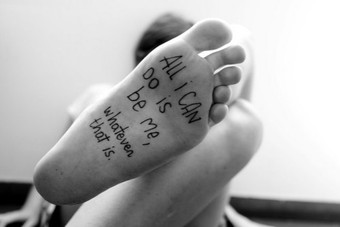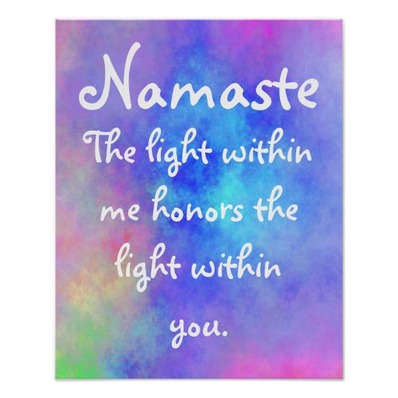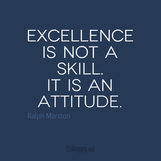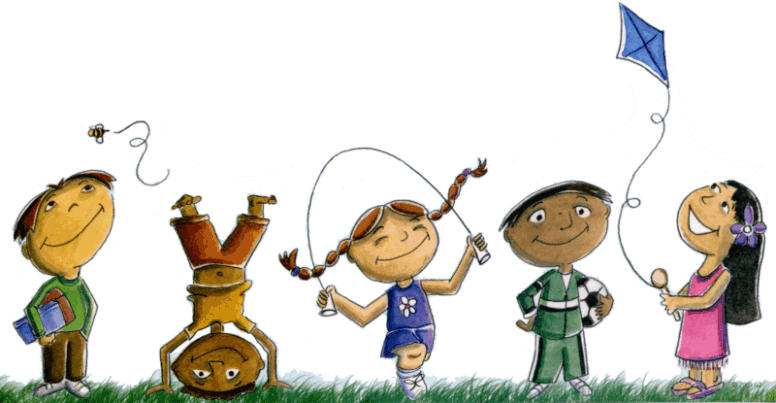 The Deep Root Center Board of Directors is conscious of the variety and sheer volume of charitable giving options you have during this holiday season. In the spirit of the philosophy that informs our dedication to providing choices to young people, we thank you for choosing to take the time to read our appeal and we honor the work of all those organizations in our community and the wider world.  Hello Friends, Deep Root Center for Self-Directed Learning (DRC) first opened its doors on January 7, 2014, bringing a unique and completely individualized educational model to the North Country. During our successful six-month pilot program, we served six part-time students. Those youth gained invaluable discernment time, allowing them insight into their personal goals. While we continue to recruit youth who want to become independent learners in this supportive, non-coercive, nurturing environment, we need your financial support. Learning how to learn is the most valuable skill a young person can develop in the twenty-first century. Your contribution enables youth to pursue their passions and live happier lives. Deep Root Center is modeled after North Star in Amherst MA. Since 1996 they have successfully supported teens who choose to leave school and become independent learners. To learn more about the North Star model view North Star founder, Ken Danford's TedX Talk, here. Please visit our website for detailed information about DRC. Deep Root Center is specifically geared toward students who want to leave the traditional school model. The Center also serves homeschool families who want additional resources or social opportunities. The staff is available to help draft and file required homeschool documents. Through the Center, youth can access resources that include a comprehensive schedule of classes, one-on-one tutorials, mentoring, field trips, and materials for hands-on projects. In addition, the Center can help students find internships or shadowing opportunities, build portfolios and navigate the college admission process. Community involvement is an important element of the Center's vision. Staff and youth collaborate with community members willing to help youth hone innate talents and acquire new skill sets. Deep Root Center believes such supervised mentoring enriches the adult volunteers as well as the youth, strengthening the fabric of the larger community in the process. Deep Root Center's Board of Directors has made a commitment to accept any youth regardless of income level and ability to pay. This is an especially profound pledge, here in St. Lawrence County, during these economically challenging times. To that end, we have created a fund so youth who long to say “yes” to a lifetime of learning are not thwarted by financial circumstances. During our critical start-up phase, this fund is even more necessary as we pay the modest costs for rent, insurance, and utilities. Please consider a donation to Deep Root Center for Self-Directed Learning. You can also join others who make a recurring monthly donation through PayPal. Your generous support will make possible our work with youth who yearn to learn in a setting free of obstruction and full of cooperation. In deep gratitude, Maria Corse Executive Director-Deep Root Center for Self-Directed Learning P. S. If you know of someone who would be interested in supporting our work, please pass this on. Thank you. You can use PayPal by clicking the donate button on our website or checks can be made payable to: Deep Root Center and mailed to: Deep Root Center, PO Box 424, Canton, NY 13617 Deep Root Center (Whole Learners, Inc.) is a registered NYS Not-for-Profit, and a 501(c)3 tax exempt organization.
0 Comments
 The following disclosure may delight, surprise, or even dismay a few family members, friends, and acquaintances: As of Friday, I am sporting a hot pink racing stripe running through my dishwater gray hair. When I told my mother, the first question out of her mouth was, “is this all about turning 50?” My immediate response was an emphatic “NO.” I want to strongly iterate this is not a mid-life crisis! Really! I have always hated my hair, even when it was a nice normal dark brown. My hair is a difficult, and in my view unfortunate, hereditary combination from my grandma, my dad, and my grandfather. Straight as a stick as my Gram used to term her own, clumpy around the temples (very thick, like my Dad's used to be), and very early gray (mid twenties for me and early twenties for my “Poppy” who has very little left at the age of 91). As the eldest child, I could have gotten the naturally curly thing, but that skipped a generation (you are welcome, MacKenzie) along with the male pattern baldness (sorry, Ian). Again, you are asking for the connection, right? Here you go: I have been preaching about being comfortable in your own skin and choosing to be yourself, instead of following the crowd. With the exception of despising my hair, I have been reasonably faithful to that message, even as a teen-ager: if the herd (flock) was pursuing the latest fad, I was usually intentionally headed in the opposite direction. I won't go into detail, but the list is long and fairly impressive. I still don't even have a smart phone! Why the hot pink? Along with purposefully choosing the alternate path, which would seem like a pretty daring thing to do, in contrast, I am also a person who would rather blend in with the crowd, or better yet work busily in the background, than be center stage. These two behaviors sound like I’m sending a contradictory message, right? As mentioned in the title, this is an analysis. In fact, I am thinking this through as I write. Maybe my internal, non-cerebral, real self has been trying to get out. She has been yelling, shouting, and generally pitching some pretty awesome fits lately, and I have worked really hard to ignore her while deeply ensconced in my warm, cozy, non-threatening, and emotionally safe comfort-zone (see this post). Well, it looks like she is having her way for the time being, and we are going to try this for a while. But, hot pink, really? What will come next: large hoop earrings, flowing gowns, and a tattoo? Now that she is out flaunting her awesome powers, no one knows where this will end up. The next 50 years are sure to be interesting—or, at the very least, fun! 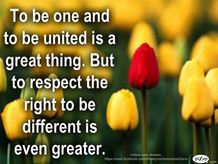 Singing R-E-S-P-E-C-T silently in your head or belting it out loud while channeling Aretha's awesome vibe is not a necessary component to understanding this post; however, just to be clear, it has been running through my head the whole time I have been writing this. Within last week’s post, I mentioned briefly that kids need to be respected so that they learn how to respect others. While reflecting on that piece later, I realized that the word “respect” is often misunderstood and even harder to define. The thesaurus offers “obedience,” “regard,” “esteem,” “honor,” and “adoration” as synonyms. In my mind these equivalent words provide three different versions of respect. The respect that is commanded, as in “I demand respect in my household,” is “obedience.” There is mutual respect, where each person is equal with-in the relationship. In other words we “regard,” “honor,” and hold each other in “esteem.” And then there is worshipful respect, where “adoration” is projected onto another person (often a celebrity), generally from afar. Two of those variations reflect power and/or inequality. When someone demands anything, they are a bully. There really is no other way to describe a person who insists that everyone do things their way, listen to them, and perform as expected. Sometimes this is achieved through subtle influence, and other times it is “in your face” pressure. This definition may seem pretty ruthless, simplistic, or even a bit naive; however, this is my personal interpretation. To worship someone from a distance is problematic in that the object of adoration has no opportunity to reflect that respect back, so it is by definition an unequal “relationship.” We can, however, respect and appreciate the work of influential people without attaching idolatry. I would like to argue that the only healthy form of respect is mutually offered and shared because it is a relationship based on conversation, which involves listening closely to each other. We don't always have to agree, but to have a true connection both parties need to have an open-minded willingness to accept and validate the other person's point of view. For children to learn respect, they need to be heard. They need to be a partner, an equal in the relationship. Children intuit when someone truly cares about their opinion. When they feel acceptance as an individual, they are then able to interact with others with empathy, humility, and honesty. On the other end, if they are unfairly influenced, manipulated, or bullied and told what, how, and when to do everything, they learn how to be resentful, angry and disengaged. A world filled with happy, engaged, and respectful kids would be a wonderful place indeed.  I receive an email every morning from the nationally acclaimed author, entrepreneur, marketer, and public speaker, Seth Godin. His blog posts are designed for people who are building and marketing businesses , but they are appropriate for nearly any situation you may find yourself in. His ideas, thoughts, and presentation are pure genius. Along with several others this week, today's post was in essence about mediocrity, and it got me thinking about our culture and the fact that “okay” or “fair” are completely acceptable and actually expected from the masses. The good news about this particular inspiration is I get to trot out the anthro geek. To be honest, I have been missing her lately. To get to the heart of the mediocrity issue, we need to first define a few terms. Culture in its most basic form is a set of learned beliefs, knowledge, and activities of any society. Culture is something passed on from one generation to the next through explicit teaching, but also through the subtle messages of propaganda. Culture can be very broad or very narrow, because within a society there are regions, communities, and individual families. For example: Culture in the United States is expansive, and not everyone learns the same exact behaviors, but family culture is exclusive to the familial connections. Ethnocentrism is the belief by one culture that everything within their culture is superior to any other. This concept originated as Eurocentrism as Europeans came into contact with other groups of people around the world and proceeded to convince those other people that they were primitive, backward, unsophisticated, barbaric, and savage. All things European were considered superior because. After all. Europeans had great societies, large monuments, big cities, art, written language, music, sophisticated religion ; you get the idea. Of course they failed to recognize that the people they were labeling had all of that; it just looked different than what they were used to. We can all recognize how dangerous ethnocentrism can be. It gives us the excuse to create the “other.” You know, those people over there who don't quite fit into our cultural world-view (remember this can be a broad or narrow interpretation). And once we are in that mindset, we are further excused if we treat “them” differently or hurt them in any way. “They” aren't like us, so it is OK. On one side of the spectrum we find judgment and discrimination, and on the other we find genocide and other unmentionable acts of torture. This becomes an insidious problem because we all want to fit into that societal mold. Each of us changes our expectations, motivations, and even thoughts so we too can squeeze into the narrow confines that define our culture, because none of us wants to be classified as different or “the other.”. Which leads us to being an individual within a culture that not only accepts mediocrity from the greater society, but from ourselves as well. This is a topic Seth Godin touches on frequently in his daily posts: When we take ourselves “off the hook” and intentionally cut corners and create products, ideas, relationships, or services that are mediocre or just okay, we are failing our society and ourselves. And we are defeating our kids and their kids, and well you get the idea! Mundanity becomes part of our culture and whizzo-whammo is passed onto future generations because culture is. . . How can we change this perpetual track of indifference? When do we get tired enough of crappy stuff to offer a solution? I would like to think the time for a change in perspective has come. I believe that if we all accept and take responsibility by committing ourselves to creating quality, and if we all stand up with courage to say mediocrity is not okay and express our expectations for excellence from companies, government, organizations, and individuals, then we can change the culture one interaction at a time. 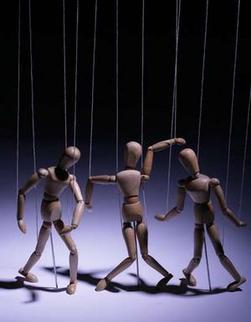 This morning (Sunday) I experienced a revelation; I would actually refer to it as a fairly profound “a-ha moment.” As I put wood into the fire, I realized that I was feeling really good, awake, and productive. Within that thought, I also concluded that I had gotten out of bed (on a Sunday no less) at my normal wake-up time without the internal dialogue I have had to use recently to convince myself to leave that cozy nest. And I had even accomplished several items on the mental to do list before 9 am. The second thought was a question: Wow, what is going on here? Which was closely followed by the realization that we had “fallen back” last evening. No, that alone was not the profound moment, and no, it wasn't the extra hour of sleep! I am a morning person: always have been and plan on being one till the end. Every late summer and early fall, however, I find myself dreading the beginning of every day. I drag my sorry butt out of bed and commence with the routine of yoga and getting ready for the day. But today is the day I finally made the connection! The nonsensical time change we persist on sustaining, even though its time of usefulness has been expired for quite a while (if it ever really had one), screws with my body big time, every single year. I feel good this morning because we are back to standard time; the place my circadian timepiece is most comfortable. Okay, some would ask, why it has taken five decades for me to make that connection? I have always hated the change in time ; I just have never made the direct correlation between feeling blah and uninspired during August-October, with the stupid change in the clocks. Now you are probably asking what my annual lethargy has to do with education, kids, or Deep Root Center, for that matter? Stay with me here while I connect the dots. Changing the clocks is a manipulation of time that affects our bodies. Most of us recognize that subtle “off” feeling directly after daylight savings time, but carry on. Some of us feel that shift more dramatically. To be honest, when we change the clocks in March, it throws me off balance for the duration of the summer and early fall. Societal manipulations, food industry manipulations, media manipulations, etc. . . happen all around us all the time, and those manipulations affect us in one way or another. Our kids often feel the brunt of all of this outside negative influence, but don't recognize it as propaganda. Society tells them they need to study and get good grades to get into college or get a good job. Their peers and media tell them they need to fit in with the crowd, have all the latest “do-dads,” and conform, conform, conform. These are messages based on fear. “If you don't do this, you won't be able to do that.” How do we foster the whole kids they were originally designed to be? How can we support kids’ efforts to be themselves when everything around them is saying “follow us,” “look like us,” “do the same things we do,” and “you can be cool, too.” How do we counter that powerful message of fear? They need to hear, in one form or another, the following positive, hopeful message daily: being well rounded, savvy, creative, empathetic, confident, respectful, and compassionate trumps everything else and always will. Our society needs whole kids who know who they are and who are not be afraid to express their individuality: children who are critical thinkers and can tease out the information they are looking for. We need youth who are problem solvers and open-minded, kids who are willing to take on the world. The message that they are awesome and have fantastic ideas has to be loud and clear. Kids need daily assurance that they are not weird or strange because they choose to be individuals. Children need to learn basic guidelines and points of reference to be able to behave as equal members of society. They need to be treated with respect, so that they know how to be respectful of everyone. If children act out, they need to understand, through conversation, why it is wrong. Youth should have the opportunity to explore their world without rules or a “to do” list. They need to be trusted to make important decisions that directly affect their lives. Kids need space and time to be creative and to play. Sometimes kids need time alone to reflect and ponder their place in the world. They need, above all, to feel the love and trust of the people around them. Most of us, myself included, have failed at most of those items more than a few times in our years of parenting or teaching. The one guarantee in life, besides the mortal part, is that no one is perfect. We all make mistakes: sometimes they are whoppers, sometimes just little blips, but whole kids understand all of that and forgive mistakes. They can do that because they, too, have made mistakes and have learned enough to recognize realness and honesty as opposed to propaganda and manipulation. If you know a child or teen who is struggling to be themselves, against all the negative messages they receive daily from the outside world, please let them know Deep Root Center is here to support them to achieve awesome whole kid status. |
|
© 2024 Whole Learners, Inc. 501(c)3
Deep Root Center
48 Riverside Drive, Canton, NY 13617
315*323*1435/[email protected]
Deep Root Center
48 Riverside Drive, Canton, NY 13617
315*323*1435/[email protected]



